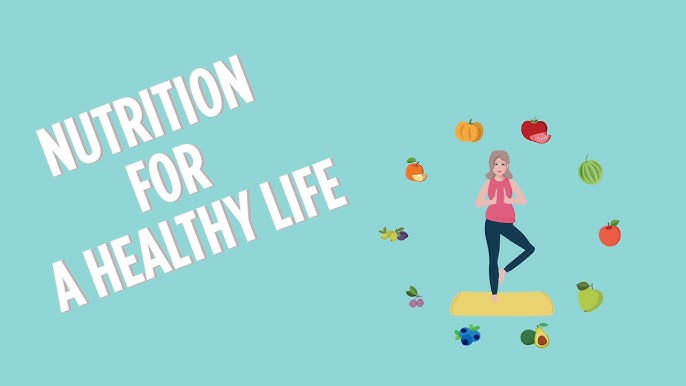Adequate nutrition is a necessity to such an extent that it maintains levels of energy and also prevents lifetime diseases, such as heart disease, cancer, and diabetes. So, how can you make your family eat a healthy diet which will fit into your lifestyle and budget?
Nutrition
Nutrition, in a general sense, is the practice of balanced diet intake with regularity. Good nutrition provides the body with nutrients necessary to maintain brain function, muscle strength, bone health, nerve activity, skin vitality, blood circulation, and a healthy immune system.
It also plays an important part in keeping such acute diseases as heart disease, diabetes, cancer, and osteoporosis at bay.
Nutrients in foods are grouped into two major categories: macronutrients and micronutrients. Proteins, carbs, and lipids are the main components. Macronutrients provide energy to give the body fuel. Micronutrients are vitamins and minerals that are necessary for various processes in the human body’s systems.
Which Foods are Nutritious?
The plant-based Mediterranean-DASH or MINDstyle diets are the best dietary options for health. Similar diets have time and again presented themselves when linked to lower prevalence of chronic conditions such as heart disease and cancer.
Found uniquely in such diets, some superfoods give great nutrients and should thus be your go-to in making daily choices about what to eat. Examples include:
Berries:
Though naturally sweet and high in fiber and antioxidants, they pack spoonfuls full of disease-fighting nutrients.
Fatty fish contains fatty acids rich in omega-3 and, by this method, it prevents heart diseases.
Green leafy vegetables are high in vitamins A, C, and calcium, and their phytochemicals act as cell defenders.
Of course, nuts are a great source of plant protein and heart-healthy lipids.
Olive Oil:
One of the most important ingredients in a healthy diet, providing dietary vitamin E and reducing heart disease through monounsaturated fats.
Whole grains are rich in fiber and B vitamins; hence, they help in digestion by reducing cholesterol, allowing your resistance against heart diseases and diabetes.
Yogurt is a nutrient that contains calcium, protein, and probiotics, which are helpful for healthy bones and guts.
Cruciferous Vegetables:
Vegetables such as broccoli and kale are rich in fiber and vitamins and have cancer-preventing properties.
Good source of fiber, protein, and folate. Eating beans and lentils may help reduce the risk of heart disease.
An ideal plate of a meal should consist of half vegetables and fruits, a quarter as whole grains, and the remaining quarter part as lean protein.
Do You Need a Daily Multivitamin?
Dietary supplements are commonly taken, but evidence is scant that they contribute considerably to health for the average healthy adult.
A diet high in fruits and vegetables contains many of the vitamins and minerals that most people require on a regular basis.
Supplements can be useful in several cases, most importantly in patients with diagnosed deficiencies or certain diseases.
If the decision were left to a professional—if one were required—then the decision would be on which product is the safest and most effective.
Dietary Needs of the Aged
As people get older, diet becomes increasingly crucial. It helps maintain energy levels and protects against age-related diseases. Although there is no single magic diet, most healthy eating plans share an emphasis on:
Vegetables, fruits, legumes, nuts, whole grains, and seeds all contain abundant amounts of many vitamins, minerals, fiber, and phytonutrients, contributing to tens of benefits to health.
Sufficient Protein:
Plants and seafood are good sources of protein.
Minimally Processed Foods:
Reducing ultra-processed foods helps with weight prevention and prevents unhealthy spikes in blood sugar.
Reducing consumption of saturated fats, added sugars, and sodium minimizes the rate at which deadly chronic diseases occur in human health at large.
Meal Prep Ideas
Eating healthy does not have to be complicated. A little planning and some preparation will have you whipping up healthy meals for the whole week. Here is how:
Meal Ideas:
Gather healthy recipes and plan exactly which meals will be eaten on which day of the week.
Small Steps:
Plan and prepare dinners for two to three days a week, building up to more.
Pick a day:
Select one day of the week for menu planning, list making, and shopping.
Cook in Order:
Items that take the longest time to cook are prepared and cooked first.
Multitasking:
Chop vegetables or wash salad greens while some foods are cooking and use them later during the week.
Make Extra:
Freeze some or utilise the remainder of the remaining parts for another week.
Storage:
Label and date the prepared items; store the perishable foods at eye level and freeze the meal preparations in the tightly sealed containers.
Stock Up:
Fruits, veggies, whole grains, lean proteins, and healthy fats on hand at all times will keep the kitchen prepared so a healthy meal is just minutes away.
Conclusion
A healthful weight loss plan is a cornerstone of a prolonged period, helping prevent continual illnesses along with heart sickness, diabetes, and maximum cancers.
By incorporating nutrient-dense ingredients like veggies, culmination, whole grains, and lean proteins, you could fuel your body with the important components it desires.
While meal prepping, choosing minimally processed elements, and following balanced nutritional plans may also additionally appear daunting before everything, small, steady steps can result in lasting conduct.
Whether you are worrying about a family or adapting to the nutritional wishes of getting vintage, prioritizing genuine nutrients ensures a healthier, extra-colorful lifestyle for future years.
FAQs About Nutrition
What are macronutrients and micronutrients, and why are they vital?
Macronutrients, along with proteins, carbohydrates, and fats, offer energy to the body, while micronutrients, like vitamins and minerals, guide diverse natural talents, which encompass immune fitness, mind traits, and bone energy.
What is a perfect balanced meal?
A high-quality balanced meal ought to embody half of a plate of vegetables and the end result, 1 / 4 of complete grains, and the last area of lean protein. Adding healthy fat like olive oil can further enhance the meal’s nutritional charge.
Are nutritional dietary supplements vital for everybody?
No, maximum humans can get the critical nutrients and minerals through a food regimen rich in quit end result, vegetables, entire grains, and proteins.
However, dietary supplements may be recommended for humans with identified deficiencies or precise clinical conditions.
What are the most dangerous foods to prevent chronic disease?
Foods such as fruits, leafy vegetables, fatty fish, eggs, olive oil, whole grains, and legumes are high in nutrients and are associated with increased risk of chronic diseases such as heart disease, diabetes, and cancer rates are so reduced
How can meal prep make healthy eating a whole lot easier?
Food preparation for healthy eating is easier with the help of advanced meal planning methods, saves time, and reduces reliance on processed ingredients. Strategies include cooking in batches, freezing quantities, and having well-prepared ingredients, such as cut-up vegetables, sparingly.
What nutritional screening is important for the elderly?
Older adults may be concerned about fiber-rich foods along with culmination, greens, whole grains, lean protein,s and healthy fats. Excessive amounts of processed foods should also be reduced to help maintain healthy muscle and bone function as they age and ensure adequate protein intake.












